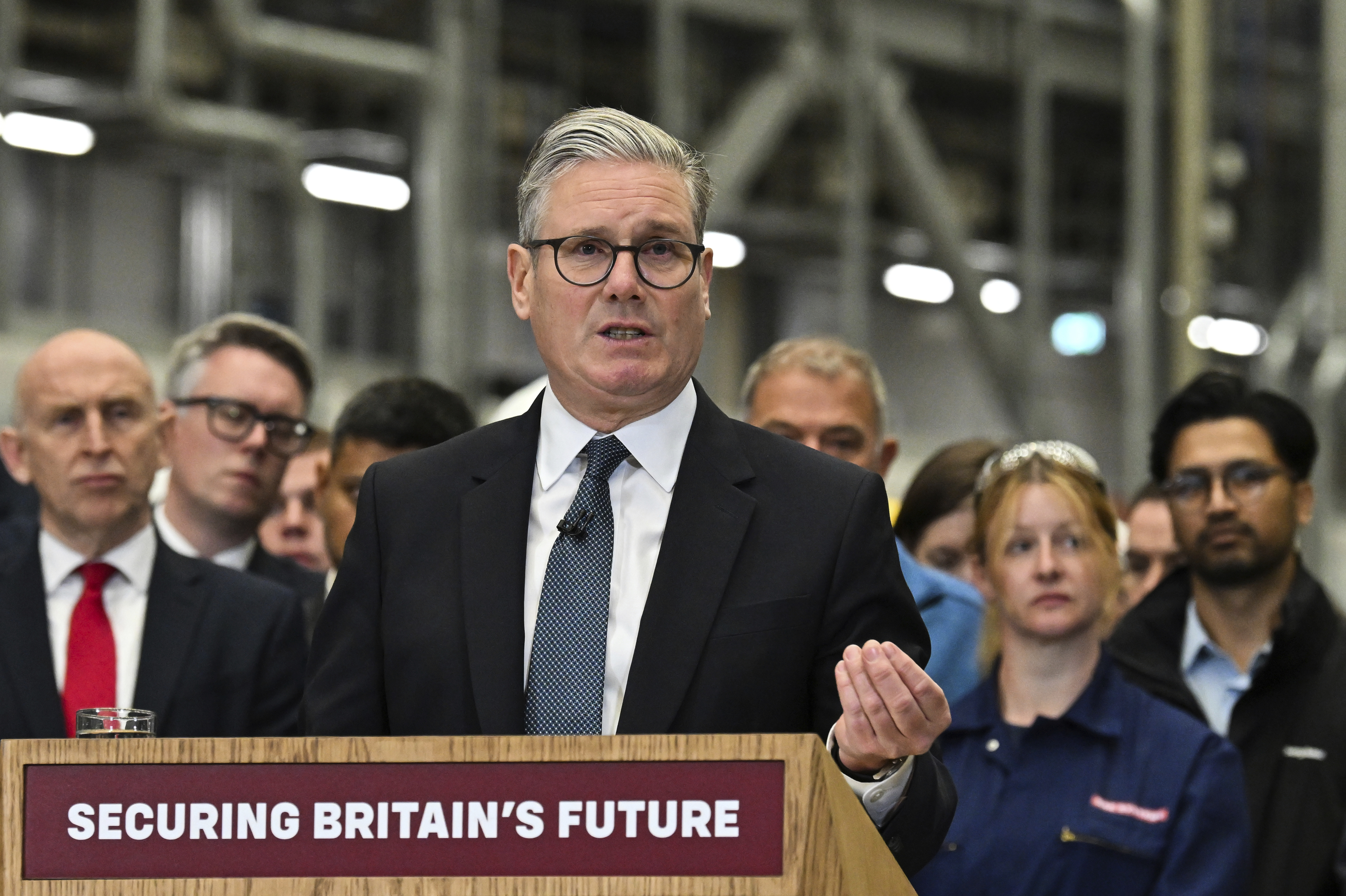Some 2,500 years after the Roman historian Publius Flavius Vegetius Renatus wrote "if you want peace, prepare for war," British Prime Minister, the Labour (Social Democrat) Keir Starmer has modernized the phrase with a very technocratic "I believe the best way to deter conflict is to prepare for it." Starmer was not just seeking rhetoric. His words were spoken at a shipyard in the Scottish city of Glasgow where he announced the largest military transformation and investment in the United Kingdom in four and a half decades, since Conservative Margaret Thatcher became Prime Minister.
With this speech, the British Prime Minister indicates his total and absolute support for all the proposals included in the Strategic Defense Review, a document by independent personalities commissioned by the Ministry of Defense to be published this afternoon detailing these reforms. The biggest issue is how to pay for this rearmament, especially given the UK's limited budgetary flexibility.
The figures announced by Starmer are enormous. Just like the scale of the new projects and the transformative ambition of British defense. All this for one country: Russia. But also out of fear of what the country that Starmer referred to as "the UK's greatest defense ally: United States" might do. Defense Secretary John Healey has described the plan as "a message to Russia." But it is also indirectly directed at the US. And likewise, to the EU. Because London's message is clear: if Europe wants to have a Defense system, it will have to rely on the UK.
The goal of independence seems clear in the nuclear issue. Currently, the much-touted British nuclear arsenal is, in reality, a defensive system largely leased from the United States, which also retains the right to veto if London decides to use its nuclear weapons, something that, furthermore, British military doctrine states will only be done within the context of NATO. So Starmer's plan includes an investment of £15 billion (¤18 billion) to develop a national industry to manufacture these devices. It is not yet clear how this decision would affect the two American companies - Lockheed Martin and KBR, the latter chaired in the late 90s by future Vice President Dick Cheney - involved in the production of these weapons.
Another important element is the UK's manufacture of 12 nuclear attack submarines, costing ¤15 billion, which will replace the seven currently held by the British Navy. It is unclear whether these submarines will be of the same type as those the UK is producing for Australia under Aukus, the trilateral defense pact between those two countries and the US. Attack submarines protect the large submarines - of which the UK has four - with intercontinental ballistic missiles.
Additionally, Starmer's government aims to build six new weapons production facilities, creating 1,000 jobs with the goal of having thousands of systems repaired, as well as the necessary industrial capacity to increase weapon stocks. Among the figures being considered are 7,000 Storm Shadow cruise missiles, which have proven extraordinarily effective in Ukraine. Finally, the proposal includes a profound transformation of the three branches of the Armed Forces, based on integrating aerial and naval drones that operate with autonomous artificial intelligence (AI) and provide support to manned ships and vehicles, an integration that, for now, only the US is implementing in the West.
And with a promise to its citizens - and voters - with whom Starmer has extremely low popularity despite winning the elections just 11 months ago: this will benefit them, not only from a security standpoint but also economically. The peace dividend that, as the Prime Minister himself stated, many countries (including the UK) enjoyed after the end of the Cold War, allowing them to reallocate resources previously dedicated to Defense.
But there is nothing to fear. Or at least that's what Starmer proclaimed. "As we spend more on Defense, there will be a greater Defense dividend," generated by job creation and technological development unleashed by the new policy. In other words: there will be guns and butter. The square of the circle. Although the voter does not see that geometry of Starmer. Just a few kilometers from the shipyard where Starmer gave the speech, in the constituency of Hamilton, Larkhall, and Stonehouse, early Scottish Parliament elections are taking place on Wednesday, where the only certainty is that the far-right Reform Party is expected to gain in voter intention. When asked if he would visit the constituency, Starmer made it clear that it is not his intention, and simply stated that Reform Party leader, Nigel Farage, promises everything to all voters without explaining how he will pay for it.
